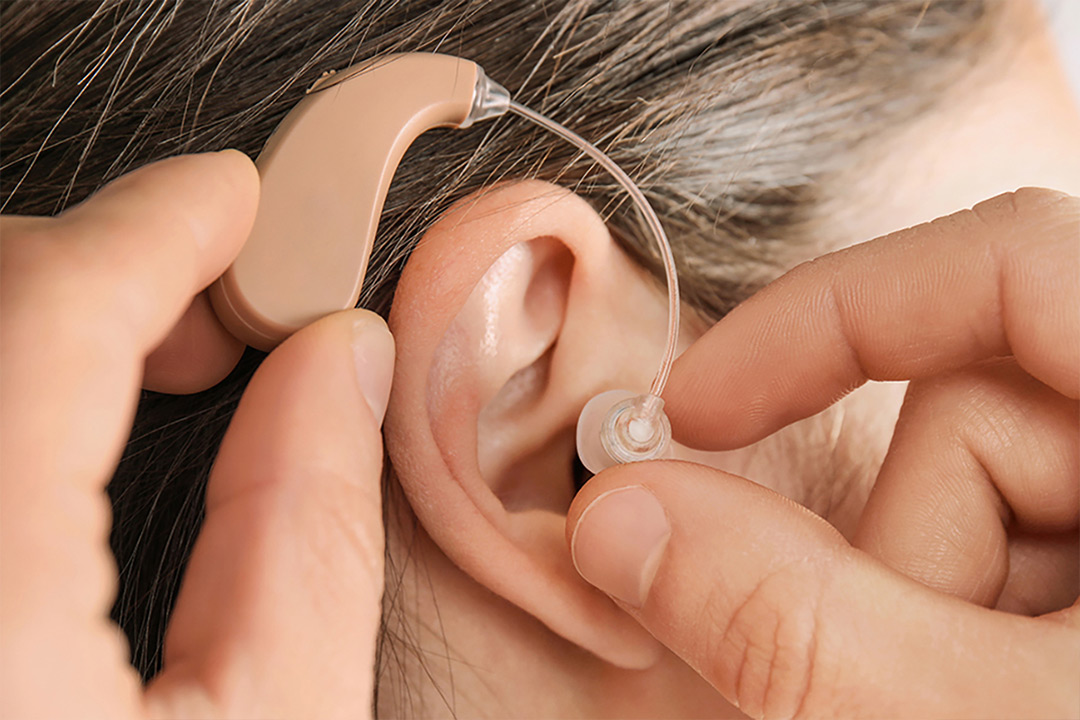What is ear, nose and throat care?
Ear, nose and throat care, often called ENT, deals with common conditions that can affect your entire head and neck region. A doctor who specializes in ENT care is also called an otolaryngologist.
The ears, nose and throat are closely connected through a network of passages and shared tissues, which is why problems in one area can affect the others. For example, the common cold can lead to ear pain, nasal congestion and a sore throat at the same time.
Common ENT problems
Some of the conditions that may be treated by an ENT doctor include:
- Ear infection (otitis media)
- Hearing loss
- Sinusitis (inflammation of the tissues in your sinuses)
- Snoring
- Tinnitus (noise or ringing in the ears)
- Tonsilitis
- Vertigo (spinning or feeling off balance)
Ear, nose and throat FAQ
ENT doctors, also known as otolaryngologists, specialize in diagnosing and treating disorders affecting the ears, nose, throat and related structures of the head and neck.
Otolaryngologists are trained in both medical and surgical approaches, allowing them to treat a wide range of conditions.
Some issues that ENT doctors treat include:
- Dizziness
- Ear infections
- Head and neck cancers
- Hearing loss
- Hoarseness
- Meniere’s disease
- Nasal deformity
- Sinusitis
- Spasmodic dysphonia
- Swimmer’s ear
- Tinnitus
- Tonsilitis
At your first ENT appointment, the doctor will begin by reviewing your medical history and discussing your current health, the reason for the visit and your recent symptoms in detail.
This is followed by a physical examination of your ears, nose, throat and neck using specialized tools like an otoscope or nasal scope. Your ENT may perform or schedule additional tests such as:
- Hearing evaluations
- Imaging studies
- Nasal endoscopy
The goal of the visit is to identify the cause of your symptoms and develop a personalized treatment plan that fits your needs, which may include:
- Lifestyle changes
- Medications
- Additional tests or procedures
Chronic sinusitis, or chronic rhinosinusitis, is inflammation of the sinuses that lasts for 12 weeks or more, even with treatment. It blocks mucus drainage, causing nasal congestion, facial pressure and difficulty breathing through the nose.
Treatments focus on reducing inflammation and improving drainage through corticosteroids, saline rinses, antibiotics, allergy medications, biologic therapies or sinus surgery if needed.
Common symptoms of chronic sinusitis include:
- Cough
- Ear pain
- Facial tenderness
- Fatigue
- Headache
- Postnasal drip
- Reduced sense of smell
- Sore throat
- Thick nasal discharge
The larynx, commonly known as the voice box, is a hollow, tube-like structure located in the middle of the neck. It plays a crucial role in breathing, producing sound and protecting the airway during swallowing.
Disorders of the larynx can affect voice, breathing and swallowing, and may include conditions like:
- Laryngitis
- Laryngeal cancer
- Vocal cord paralysis
You should see an ENT specialist for sinus problems when symptoms become chronic, severe or do not improve with standard treatments.
If you've had sinus issues lasting more than 12 weeks, experience frequent infections or have persistent nasal congestion, facial pressure, postnasal drip or loss of smell, an ENT can help identify the cause.
An ENT may perform exams or imaging studies to assess your sinuses and recommend treatments such as:
- Allergy management
- Medications
- Sinus surgery if necessary
Seeing an ENT helps ensure that you receive expert care for long-term relief and improved sinus health.
Yes, thyroid disorders can cause dizziness and balance problems. Both hypothyroidism and hyperthyroidism can affect circulation, metabolism and the nervous system, which may affect the inner ear and vestibular system — key components in maintaining balance.
If you experience symptoms of thyroid imbalances, it’s important to seek medical evaluation and thyroid function testing. These symptoms can include:
- Fatigue
- General unsteadiness.
- Heart palpitations
- Lightheadedness
- Vertigo
- Weight changes
Tinnitus is when you experience ringing or other noises in one or both of your ears that aren't caused by an external sound.
It’s a common condition and often a symptom of issues such as:
- Age-related hearing loss
- Earwax blockage
- Exposure to loud noise
- Ear injury
- Problems with the circulatory system
Tinnitus can also be linked to neurological disorders, vascular issues, temporomandibular joint (TMJ) problems or certain medications.
Tinnitus can improve with treatment of the underlying cause or through approaches that help manage its impact.
Some treatments include:
- Cognitive behavioral therapy
- Hearing aids
- Lifestyle adjustments that reduce or mask the noise, making it less noticeable
- Sound therapy
Vertigo is a sensation of spinning or feeling off balance. It can make you feel as if the world around you is moving even when you're standing still.
It’s usually a symptom of a separate issue rather than a condition on its own, and it can last from a few seconds to several hours.
Vertigo is most often caused by problems in the inner ear, such as benign paroxysmal positional vertigo (BPPV), which occurs when tiny calcium particles shift within the ear canals. Other causes may include infections, Meniere’s disease or neurological conditions like a stroke or brain tumor.
Treatment depends on the underlying cause and may involve:
- Medication
- Physical exercises
- Therapy
Helpful resources

Article
Allergies vs. sinus infections
Sinus infections aren't the same as allergies, but their symptoms can look very similar — and so can their treatments.

Article
7 ways to protect your hearing
The earlier you work to prevent hearing loss, the less likely you are to develop issues with hearing as you get older.

Article
How to tell if you need hearing aids
Hearing loss is relatively common in older adults. Learn the signs that you might need a hearing test and the devices that can help.
*Ear, nose and throat (ENT) services vary by location. Check with your doctor’s office or health plan for specific information.
Optum arranges for or provides medical and other clinical services in accordance with laws in each state it operates. Physicians or providers referenced on this website are to those who are either part of independent practices or to those medical practices managed by or owned, where permitted, by Optum. In all circumstances, physicians and other licensed professionals have complete authority for all medical decision-making and patient care. Optum does not determine or set the methods, standards, or conduct of the practice of medicine or health care provided by any of the practices or their physicians or other licensed professionals.




